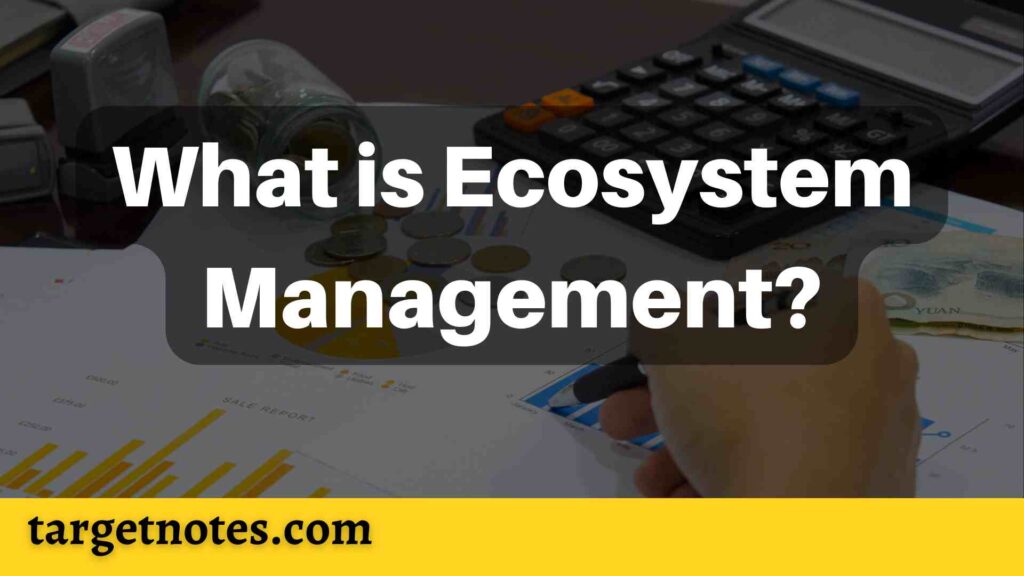
What is Ecosystem Management?
Contents
Ecosystem Management
When natural resource management is applied to whole ecosystems, rather than single species, it is termed ecosystem Management. Although definitions of ecosystem management abound, there is a common set of principles which underlie these definitions. A fundamental principle is the long-term sustainability of the production of goods and services by the ecosystem; “intergenerational sustainability [is] a precondition for management, not an afterthought”.
While ecosystem management can be used as part of a plan for wilderness conservation, it can also be used in intensively managed ecosystems (see, for example, agroecosystem and close to nature forestry).
Threats caused by humans
As human population and per capita consumption grow, so do the resource demands imposed on ecosystems and the effects of the human ecological footprint. Natural resources are vulnerable and limited. The environmental of anthropogenic actions are becoming more apparent. Problems for all ecosystems include: environmental pollution, climate change and biodiversity loss. For terrestrial ecosystems further threats include air pollution, soil degradation, and deforestation. For aquatic ecosystems threats include also unsustainable exploitation of marine resources (for example overfishing of certain species), marine pollution, microplastics pollution, water pollution, the warming of oceans, and building on coastal areas.
Society is increasingly becoming aware that ecosystem services are not only limited but also that they are threatened by human activities. The need to better consider long-term ecosystem health and its role in enabling human habitation and economic activity is urgent. To help inform decision- makers, many ecosystem services are being assigned economic values, often based on the cost of replacement with anthropogenic alternatives. The ongoing challenge of prescribing economic value to nature, for example through biodiversity banking, is prompting transdisciplinary shifts in how we recognize and manage the environment, social responsibility, business opportunities, and our future as a species.
What is the relation between ecosystem and environment?
Ecology involves relations between organisms and their physical environment. Ecosystem is the system formed as a result of ecology(the interaction of a community of organisms with their physical environment). Environment is just the physical(land, water, soil, climate etc…) part of ecosystem
Important Link
- अधिकार से आप क्या समझते हैं? अधिकार के सिद्धान्त (स्रोत)
- अधिकार की सीमाएँ | Limitations of Authority in Hindi
- भारार्पण के तत्व अथवा प्रक्रिया | Elements or Process of Delegation in Hindi
- संगठन संरचना से आप क्या समझते है ? संगठन संरचना के तत्व एंव इसके सिद्धान्त
- संगठन प्रक्रिया के आवश्यक कदम | Essential steps of an organization process in Hindi
- रेखा और कर्मचारी तथा क्रियात्मक संगठन में अन्तर | Difference between Line & Staff and Working Organization in Hindi
- संगठन संरचना को प्रभावित करने वाले संयोगिक घटक | contingency factors affecting organization structure in Hindi
- रेखा व कर्मचारी संगठन से आपका क्या आशय है ? इसके गुण-दोष
- क्रियात्मक संगठन से आप क्या समझते हैं ? What do you mean by Functional Organization?
Disclaimer: Target Notes does not own this book, PDF Materials Images, neither created nor scanned. We just provide the Images and PDF links already available on the internet. If any way it violates the law or has any issues then kindly mail us: targetnotes1@gmail.com






